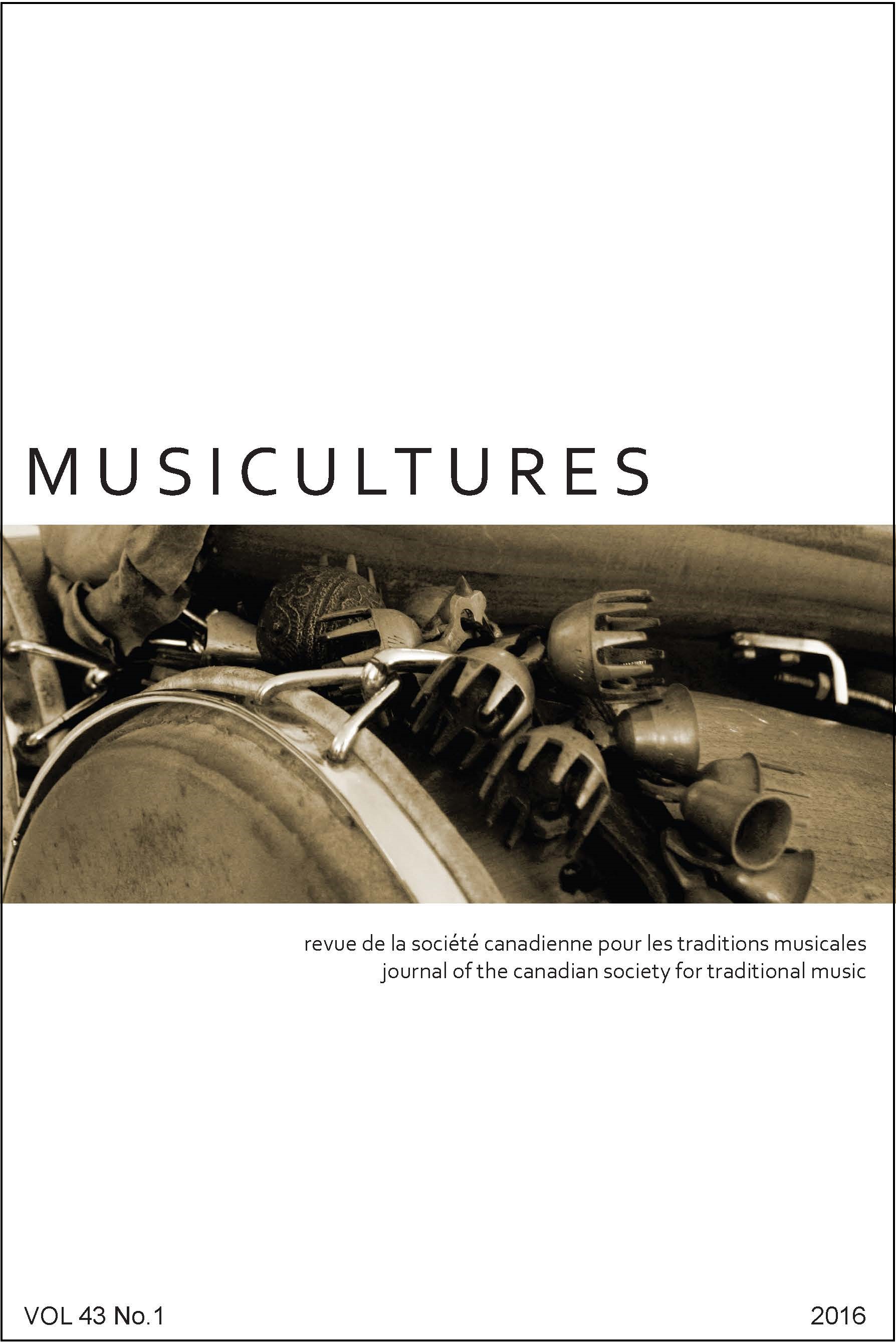Résumé
Le terme « écologie », qui relevait dans les années 1950 de la biologie, a été importé et appliqué à un grand éventail de pratiques culturelles, d’environnements et de contextes humains. Ce trope a eu un fort retentissement dans le monde universitaire et il s’utilise depuis longtemps dans les sciences sociales pour contextualiser certains aspects de la vie sociale et culturelle. Cet article examine l’application de l’écologie et de concepts écologiques à notre façon d’appréhender et de comprendre la musique, application que l’on peut faire remonter à près de cinquante ans. Nous discutons ici d’un certain nombre de questions relatives à l’appropriation de principes écologiques pour articuler et expliquer l’activité musicale humaine. Dans cet article, nous évaluons de manière critique les ramifications qu’implique le fait d’envisager la relation entre les gens, leur musique et leur monde en termes écologiques.Ébauche de règlement relatif aux droits des auteurs d’articles publiés dans MUSICultures
- L’auteur conserve ses droits sur son travail.
- L’auteur cède au propriétaire de la revue (The Canadian Society for Traditional Music / La Société canadienne pour les traditions musicales) l’exclusivité de la publication de son œuvre.
- L’auteur peut publier une version pré- ou post- publication de son travail (voir les définitions ci-dessous) sur un site Internet personnel jusqu’à douze mois après sa publication dans MUSICultures. Au bout de douze mois, la version pré-publication doit être remplacée par la version publiée.
- L’auteur a la possibilité de déposer le PDF de son travail publié sur un répertoire en ligne à but non lucratif douze mois après que son travail ait été publié dans MUSICultures, ou par la suite à n’importe quel moment à sa convenance.
- Un tel dépôt doit comporter un lien renvoyant à son travail sur le site Internet de MUSICultures, soit https://journals.lib.unb.ca/index.php/MC/article/view/19996
Une pré-publication est un travail en cours – une contribution non encore acceptée, voire encore non soumise, à MUSICultures.
Une post-publication est la version d’une contribution après évaluation par les pairs et acceptation par MUSICultures, les corrections y ayant été apportées.
La version publiée est le fichier PDF de la contribution telle qu’elle apparaît dans MUSICultures.
Veuillez noter que academia.edu et ResearchGate.com sont tous deux des répertoires à but lucratif ; les auteurs ne peuvent y déposer les versions PDF publiées de leur travail avant la fin de la période d’interdiction imposée par la revue.
Pour les autorisations de réimprimer ou de traduire des textes de MUSICultures, veuillez contacter Heather Sparling, rédactrice en chef de MUSICultures (heather_sparling@cbu.ca).

